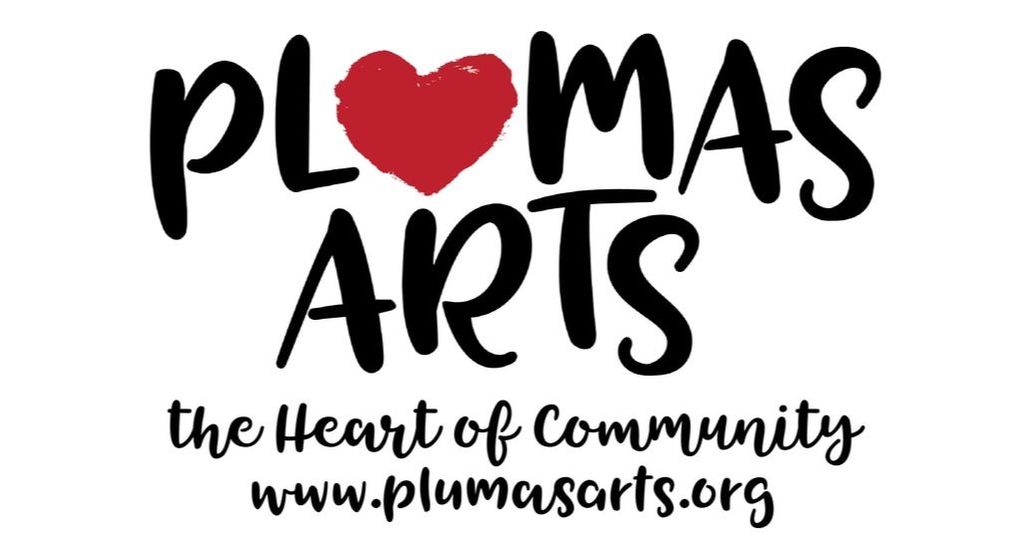Written Word
Let’s begin with this invitation from Dr. Will Lombardi,
Plumas Arts Board Member and Feather River College English Instructor.
We look forward to hearing from you.
What is essential?
What do we mean by shelter?
Where are our places?
These have become the central questions of our lives in recent weeks as each of us faces, individually and as a society, the global Coronavirus pandemic. They are questions about belonging, and, in particular, belonging together. We are living our lives under the sign of shared risk. At the same time, it seems, our forced isolation from one another has revealed our need for contact, our need to make meaning with and through one another, our need to see and touch and create together.
I, for one, am coming to understand my selfhood as something beyond myself, as formed through my interactions with and interdependence on other people. I find this lesson beautiful and frightening. To know I am part of, but must for a while isolate myself from, this web of interconnection so necessary to my being, gives me an incredible hope—one that I admit I must recommit to every day—but hope nonetheless, for new and creative ways to connect with others and my place.
My first thought, when I heard the language of pandemic mediation—“essential business,” “shelter in place”—was just how quickly I realized how essential art had become for all of us. The ability to stream films, to write our support for each other, to share our lives in photos, to read novels, all of these have become necessary to mental health, self care, and interpersonal well-being. The humanities and fine arts absolutely matter, absolute concern us, absolutely require our support. It is plain to me now in ways I’d only thought of in the abstract, just how life-sustaining art is to all of us.
Likewise, our present circumstances have underlined the very complicated meanings of “shelter” and “place.” To have shelter is so very clearly a privilege; to have a place is now so utterly profound. It seems impossible for me now to get to the heart of these words, and yet, too, they seem drained of all ambiguity at the same time. I have a roof over my head, but like so many of us I sometimes feel the burden of losing the sheltering comforts of everyday companionship. I know where my place is in the same way, but my heart reminds me of my far-flung love for so many places. My heart is here. My heart is every place there are people I love. Place is an archipelago of care, and it extends in ways we can only guess.
I know that for every one of us, what is essential, what it means to have shelter, what it means to be in place, is different. This difference is what adds to the richness of our collective experience. Plumas Arts wants to create a space where we might share and assemble our various meanings of these words. Think of it as a virtual maker’s space for us to build a portrait of our time apart together.
Plumas Arts Board Member and Feather River College English Instructor.
We look forward to hearing from you.
What is essential?
What do we mean by shelter?
Where are our places?
These have become the central questions of our lives in recent weeks as each of us faces, individually and as a society, the global Coronavirus pandemic. They are questions about belonging, and, in particular, belonging together. We are living our lives under the sign of shared risk. At the same time, it seems, our forced isolation from one another has revealed our need for contact, our need to make meaning with and through one another, our need to see and touch and create together.
I, for one, am coming to understand my selfhood as something beyond myself, as formed through my interactions with and interdependence on other people. I find this lesson beautiful and frightening. To know I am part of, but must for a while isolate myself from, this web of interconnection so necessary to my being, gives me an incredible hope—one that I admit I must recommit to every day—but hope nonetheless, for new and creative ways to connect with others and my place.
My first thought, when I heard the language of pandemic mediation—“essential business,” “shelter in place”—was just how quickly I realized how essential art had become for all of us. The ability to stream films, to write our support for each other, to share our lives in photos, to read novels, all of these have become necessary to mental health, self care, and interpersonal well-being. The humanities and fine arts absolutely matter, absolute concern us, absolutely require our support. It is plain to me now in ways I’d only thought of in the abstract, just how life-sustaining art is to all of us.
Likewise, our present circumstances have underlined the very complicated meanings of “shelter” and “place.” To have shelter is so very clearly a privilege; to have a place is now so utterly profound. It seems impossible for me now to get to the heart of these words, and yet, too, they seem drained of all ambiguity at the same time. I have a roof over my head, but like so many of us I sometimes feel the burden of losing the sheltering comforts of everyday companionship. I know where my place is in the same way, but my heart reminds me of my far-flung love for so many places. My heart is here. My heart is every place there are people I love. Place is an archipelago of care, and it extends in ways we can only guess.
I know that for every one of us, what is essential, what it means to have shelter, what it means to be in place, is different. This difference is what adds to the richness of our collective experience. Plumas Arts wants to create a space where we might share and assemble our various meanings of these words. Think of it as a virtual maker’s space for us to build a portrait of our time apart together.
2020 Submissions
|
A Brave, Compliant Man
By Lynn Coffman
Your browser does not support viewing this document. Click here to download the document.
Ambient One
By Corrine West
Your browser does not support viewing this document. Click here to download the document.
|
Body, Soul and Place
By Kendrah Fredricksen
Your browser does not support viewing this document. Click here to download the document.
|





